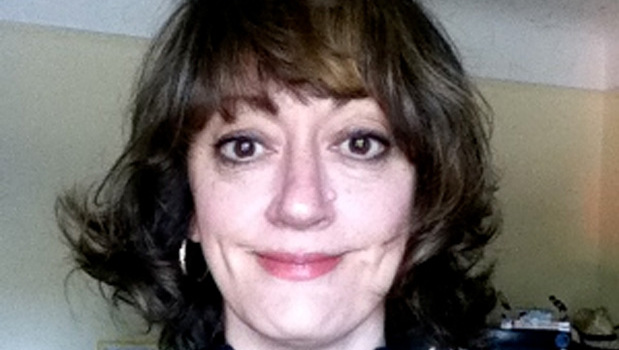The Biz Interview: Dorothy Woodend from DOXA
In anticipation of the DOXA 2012 Documentary Film Festival, we spoke with Dorothy Woodend, the Director of Programming for DOXA. Having also worked with other festivals like the Vancouver International Film Festival and been a film critic for The Tyee since 2004, Dorothy spoke to us about this year’s festival and the current state of the documentary genre.
How did you first become involved with DOXA?
I first became involved with DOXA first as a film critic. I had followed the festival for a number of years, and thought their programming was really interesting. When I was working at the Vancouver International Film Festival, I called Kris Anderson (DOXA’s founder) and asked her if she needed anyone to screen the films, and she said, “Sure!” I was on the screening committee for the festival for a number of years, before joining the Board of Directors. I chaired the programming committee for two years, and, when Kris decided to step down from her position as Director of Programming, she suggested that I apply for the position.
What can DOXA fans and those who are new to the festival expect from this year’s program?
Every year at DOXA, we try something new, this level of curiosity I think it is really what differentiates DOXA from other film events in the city. Partly, I think this level of innovation stems directly out of the experimentation and creativity that documentary practice is enjoying at the moment. You see it very clearly when you’re screening films from all over the world. Some of my favourite films this year were the ones that set out to deliberately to question what documentary can do. Nowhere was this more explicit than in the festival’s opening film Bear 71, which plays with the form, not just in a narrative sense, but by expanding the very idea of how audiences can interact with a film. The use of different platforms of presentation, be it online, in a cinema, or an installation, allows people to see the story from a variety of perspectives. For a programmer this is a very exciting time. One of the things that I’m most thrilled about this year is the sheer diversity in documentary, whether it’s a film like Gary Tarn’s The Prophet, which takes inspiration from the famous poem from Kahlil Gibran, or Jason Becker: Not Dead Yet, Jesse Vile’s film about a guitar prodigy who was diagnosed with Lou Gehrig’s Disease, and like the title says, didn’t die. There are so many exceptional films this year that it’s truly an embarrassment of riches.
What does DOXA represent for the film community and what makes it different from other film festivals?
One of the things that I have always really deeply valued and loved about DOXA from the very beginning is its sense of openness. Because we’re not limited to any one demographic or specific community, everyone is a potential audience member. I think it’s this coming together of many different groups of people that gives the festival its special flavour. Even as the options for seeing films continues to develop and proliferate at a blistering pace (i.e., the emergence of Video On Demand, online programming and web-based media) what endures in the midst of this evolution is the idea that film festivals are a means for a community to come together. DOXA’s intent is ultimately to foster a greater sense of active engagement with film as a collective event and experience and to promote the sociality of cinema.
For the film community, DOXA is a much more intimate affair than a lot of the larger festivals, where it’s easy to get lost occasionally. Because we’re an audience-driven festival (filmmakers aren’t necessarily here to make deals), they’re free to really interact with audiences, their fellow filmmakers, watch films, have conversations, etc. I’ve actually heard from a lot of filmmakers that DOXA is one of the most enjoyable festivals they’ve been to.
How do you feel that documentaries as a genre have evolved since DOXA originally started?
When DOXA launched in 2000, its mandate was to educate the public in the art of documentary. More than a decade later, I think that intent has arguably been fulfilled. In the previous 12 years, basically since the advent of the festival, there has been a veritable explosion of filmmaking, partly this is explained by the means of production becoming available to many more people. Cameras, editing software, etc. are affordable and accessible. Suddenly everyone has the means to make a film. I think this type of democratization has really benefited documentary in that you get to see stories that you would never have previously had access to. Films like Tahrir – Liberation Square, which is very much on—the-ground filmmaking that has the power to really put you directly in the midst of history in the making. There is a real immediacy to some of the films. I think documentary has come to occupy the place that used to be taken up by mainstream journalism. As traditional media has failed, or fallen away, documentary has rushed in to fill the void. You see it very clearly in a film like The Reluctant Revolutionary that was made in Yemen by British filmmaker Sean McAllister. When every other mainstream journalist had left the country, Sean kept filming and ended up being able to tell a story that no one else had access to. The commitment that documentary filmmakers have to the stories they’re telling is something that just blows me away every year. Whether they’re risking their lives, or, in the case of Fredrik Gertten (Big Boys Gone Bananas!*) taking on one of the world’s largest corporations.
What can you share about the selection process that goes into the films chosen to screen at DOXA?
DOXA has great screening and programming committees, who watch all the submissions that come through our open call that goes out in October. We also invite a lot of films to the festival. This year, I also attended IDFA (International Documentary Festival Amsterdam), the world’s largest documentary festival that takes place in November in Amsterdam. It’s a bit of a wild scene, a true gathering of the tribes. The one thing that has changed in the way that you see films, is the emergence of online screening rooms. IDFA pioneered this idea with DOCS for Sale, which is a service that allows programmers to watch more than 500 films online. A number of different sites are now offering similar access (i.e., Festival Scope, Cinando, etc.). It’s terrific, in that it allows you to see so many more films, instantly. But it can be a little overwhelming occasionally, in that there are so many films to watch that sometimes you don’t leave your house for days on end.
Why do you think documentaries have had such a lasting impact on the film world?
Documentaries have a lasting impact simply because they’re dealing with reality, in all its myriad complexities. It’s easy to watch a narrative film, walk out of the theatre, and have it instantly leave your head. The thing I find most fascinating about documentary film is that it really has the power to galvanize action and engagement, to change the way people think and behave in the long term.
The ability of documentary film to deeply examine ideas and issues is only one small aspect of what the genre currently encompasses. A number of recent articles have cited the ability of films such as End of the Line, Waiting for Superman, An Inconvenient Truth to act as a catalyst for social change, fundamentally altering people’s behaviour. (Joe Berlinger’s film triptych Paradise Lost 3: Purgatory, arguably made a significant difference in saving three men from the death penalty.) Given the potential impact that documentary film has had, we feel a great deal of responsibility at DOXA to seek out the very best in contemporary nonfiction cinema, but also to carefully define the our own curatorial vision.
What elements do you think are critical to create an effective documentary film?
The thing that it is most critical is the same as it’s always been, commitment, passion, and for lack of a better word, authenticity. You see a lot of films when you’re screening submissions that are issue-driven, but are lacking a really deep engagement with their subject. There’s a lot of parachuting in from outside to make films about problems around the world. This is not to take away from the very pressing issues themselves, but an issue does not a film make. There still needs to be a level of artfulness, since ultimately that is what films are, an art form. This is no less true for documentary, than it is in narrative cinema.
What advice would you offer to new documentary filmmakers?
“Write what you know,” is always the adage that they give to new writers, but in the case of documentary filmmakers, I would tweak it slightly and say make a film about the thing that means the most to you.
The 2012 Doxa Documentary Film Festival runs from May 4th to May 13th, 2012.
Please visit DoxaFestival.ca for more information.

















